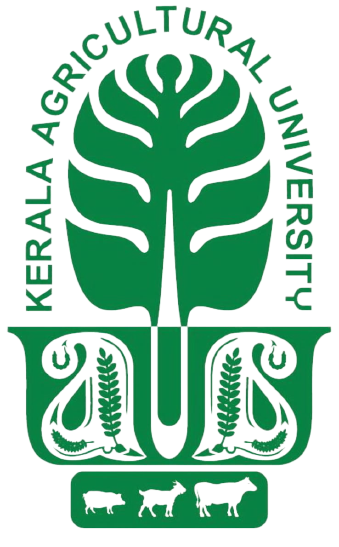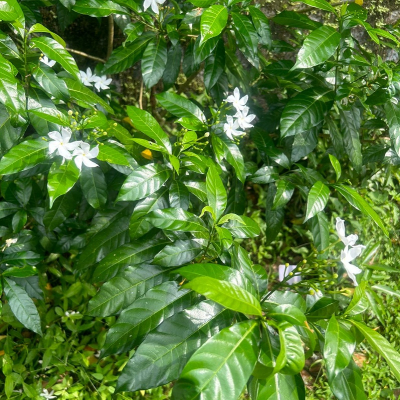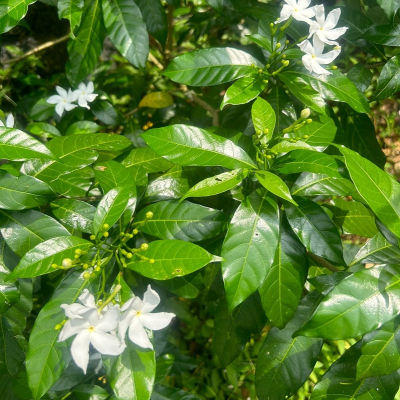Tabernaemontana divaricata (Linn.) R.Br. ex Roem.& Schultes
Synonyms : Eravatamia coronaria (Jacq.) Stapf , Ervatamia divaricata (Linn.)Burkill
Family : Apocynaceae
Parts Used : Root , Flower
Vernacular Names :-
| English | : | East Indian rosebay |
| Malayalam | : | Nanthyarvattam |
| Hindi | : | Chandni |
| Sanskrit | : | Nandivrksah |
| Kannada | : | Nandibattu |
| Tamil | : | Nantiyavattam |
| Telungu | : | Nandivardhanamu |
Distribution and habitat: Found throughout India
Botany: A glabrous, evergreen shrub 1.8-2.4 m in height with silvery grey bark and milky latex.
- Leaves : Simple, opposite, elliptic or elliptic-lanceolate, smooth, glossy green, acuminate, margins wavy.
- Flowers: White, sweetly fragrant in 1-8 flowered cymes at the bifurcations of the branches, lobes of corolla overlapping to right in the bud.
- Fruits : Follicles 2.5-7.5 cm long, ribbed and curved, orange or bright red within, narrowed into a slender curved beak.
- Seeds : Dull brown, minutely pitted, irregular, enclosed in a red puply aril.
Properties: The roots are bitter, acrid, thermogenic, anodyne, astringent, vermifuge, and tonic.
Chemical constituents: Coronaridine, vocangine
Uses:
- Root is used in odontalgia, opacity of the cornea, paralysis, melalgia.
- Flowers used in burning sensation, ophthalmitis, dermatopathy.
- Latex used in wounds
Propagation: Seeds and stem cuttings


